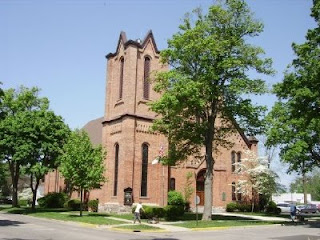Messiah: Benefit Concert Susannah Maria Arne Cibber
Susannah Maria Arne Cibber1714 - 1766
Celebrated English Actress and Singer
The following is a newspaper report which appeared in almost identical form in the Dublin Journal, The Dublin News-Letter, and the Dublin Gazette, after the first performance in 1742On Tuesday last (the 13th) Mr Handel's Scared Grand Oratorio, the MESSIAH, was performed at the New Musick-Hall in Fishamble-street; the best Judges allowed it to be the most finished piece of Musick. Words are wanting to express the exquisite Delight it afforded to the admiring crouded Audience. The Sublime, the Grand, and the Tender, adapted to the most elevated, majestick and moving Words, conspired to transport and charm the ravished Heart and Ear. It is but Justice to Mr. Handel, that the World should know, he generously gave Money arising from this Grand Performance, to be equally shared by the Society for relieving Prisoners, the Charitable Infirmary, and Mercer's Hospital, for which they will ever gratefully remember his Name; and that the Gentlemen of the two Choirs, Mr Dubourg, Mrs Avolio, and Mrs. Cibber, who all performed their Parts to Admiration, acted also on the same disinterested Principle, satisfied with the deserved Applause of the Publick, and the conscious Pleasure of promoting such useful, and extensive Charity. There were about 700 People in the Room, and the Sum collected for that Noble and Pious Charity amounted to 400 pounds.
Clearly, this first performance was not church-related per se. From my point of view, it sounds like a gala event, slated around a holiday, and designed to raise money for a good cause by having *big name* performers, musicians, and conductor.
Mrs Cibber was one such attraction, despite the fact that she required prolong coaching.
Make note of the *Gentlemen of the two choirs* as commenter Kelly has been inquiring about the involvment of female roles/parts in Messiah. My guess is that because the choirs were under the auspices of the church, that indeed, there were no women in those choirs.
However, that said, the chancellor of St Patrick's, one of the choirs, was in the audience and had only praise for Mrs. Cibber's performance. According to late 18th-century tradition, when Mrs Cibber sang 'He was despised' the chancellor (Delaney), seated in one of the boxes, exclaimed,
Woman, for this be all thy sins forgiven thee.
quotes taken from pages 127-128 of
Handel's Messiah: A Celebration by Richard Luckett
 All four couples in this photo share the same anniversary.
All four couples in this photo share the same anniversary.







